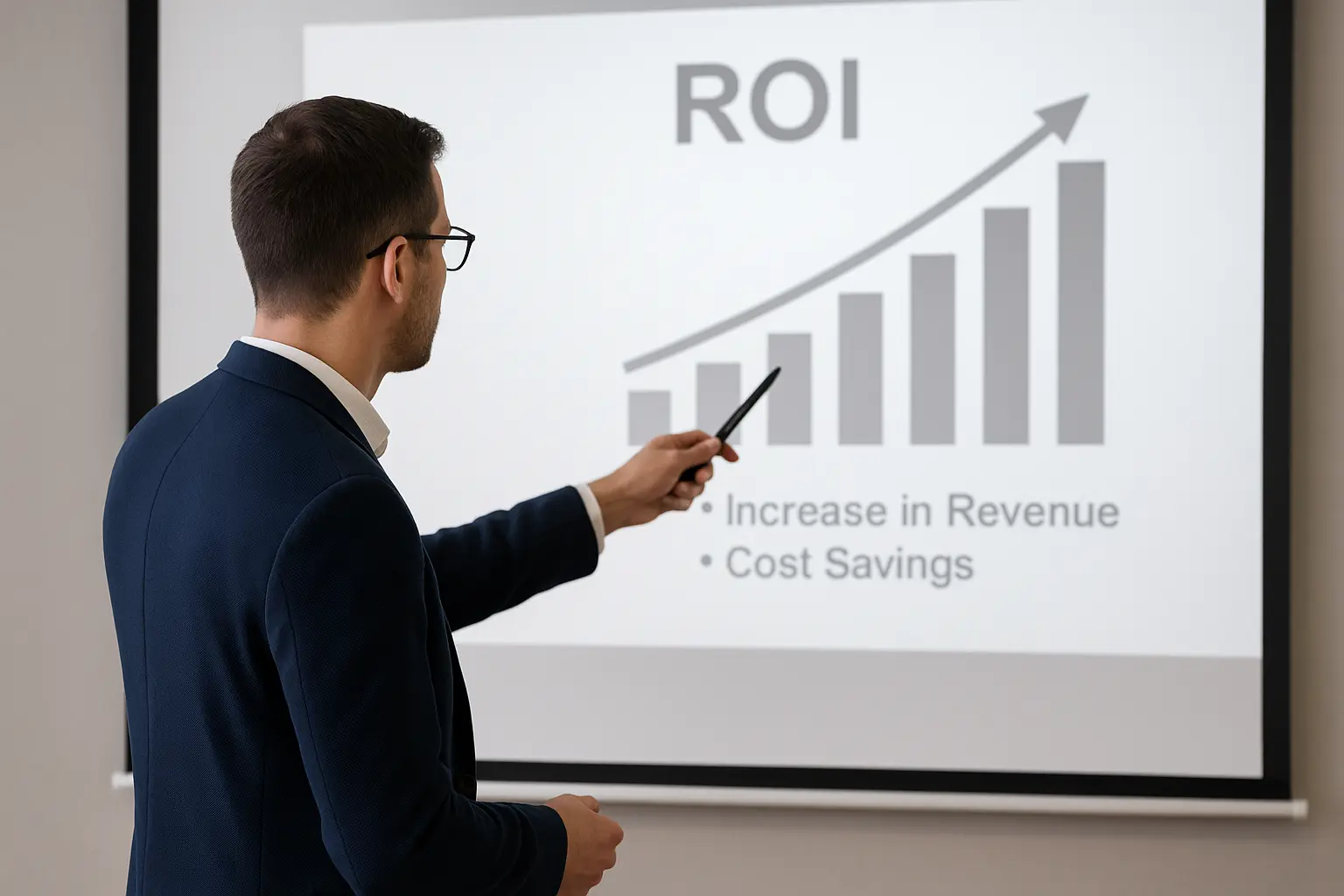Et vous, êtes-vous « accro » à vos meilleurs commerciaux ?
De quoi parle-t-on quand on évoque la menace d’une « trop forte dépendance à ses meilleurs commerciaux » ?
Il ne s’agit pas ici d’addiction (malgré ce titre de paragraphe un peu provocateur !) mais bien de la notion de dépendance au sens premier, définie comme « un rapport de liaison étroite entre quelque chose et ce qui le conditionne ».
En d’autres termes :
Vous pouvez (et devez !) vous considérer comme dépendant de vos meilleurs commerciaux si un faible nombre de membres de votre équipe commerciale représente à lui seul une part vitale de votre chiffre d’affaire.
La question à vous poser est donc : y a-t-il parmi mes commerciaux un ou plusieurs membres dont le départ ou l’invalidité mettrait directement et dangereusement à mal la rentabilité de mon entreprise ?
Si la réponse est oui, vous avez tout intérêt à faire évoluer la situation (et à lire la suite de cet article !) pour rester maître de votre réussite commerciale !
Les dangers de la dépendance envers quelques commerciaux
Dans la pratique, il est courant d’observer des écarts de résultat entre les membres d’une équipe commerciale.
Lorsqu’on évalue la performance des commerciaux (uniquement) sur la base du chiffre d’affaire généré, voici le type de répartition que l’on observe le plus souvent :
-
- 5 à 10 % de commerciaux « sur-performants », dont les résultats se situent très nettement au-dessus de la moyenne de l’équipe
- 80 à 90 % de commerciaux « dans la moyenne » des résultats attendus et de ceux réalisés par leurs collègues
- 5 à 10 % de commerciaux en « sous-performance » par rapport aux autres (à l’instant T ou plus durablement)
La situation commence à s’avérer inquiétante, lorsque la catégorie des « sur-performers » porte à elle seule 30 à 40% de votre chiffre d’affaires.
Vous entrez alors en zone de risques :
-
- Risque économique, d’abord : en cas de défaillance de leur part, la pérennité de votre entreprise peut être dangereusement mise à mal.
- Risque RH, ensuite : crainte de perdre l’un de ces précieux « piliers », difficulté à retrouver quelqu’un « d’aussi bon » en cas de départ, et sentiment d’inégalité (concurrence, jalousies…) au sein de l’équipe.
Alors, comment éviter d’aboutir à ce type de situation, ou en sortir si vous vous y trouvez actuellement ?
Découvrez les webinars KESTIO, on y aborde
tous les sujets liés à la performance commerciale avec nos experts :
Fabien Comtet, CEO
Dominique Seguin, DG
Nicolas Boissard, Directeur Marketing
Talents individuels et efficacité collective
1. DÉFINIR « DES POSTES » AU SEIN DE L’ÉQUIPE COMMERCIALE
Vous pensez que tous vos commerciaux ne peuvent pas être des performers, et vous vous êtes résignés à cette idée ?
Et si ce n’était en définitive qu’une question de point de vue ?
C’est vrai, vos commerciaux ne performent pas tous, tout le temps, sur tous les plans et dans tous les contextes, mais en réalité ce sont TOUS de potentiels performers : dans certains domaines et sous certaines conditions… qu’il faudra découvrir pour permettre à leurs points forts de s’exprimer et de se développer.
Définissez un process commercial bien segmenté dont l’efficacité ne reposera pas sur la maîtrise de l’ensemble des étapes par quelques individus particulièrement talentueux.
Concentrez-vous plutôt sur la maîtrise d’une à deux étapes bien définies par chacun d’entre eux.
Vous pourrez alors les affecter prioritairement – voire exclusivement – aux phases de votre process de vente sur lesquelles ils excellent : nourrir le fichier prospects, générer des leads, qualifier les opportunités, construire les propositions commerciales…
En bref, et pour employer une métaphore footbalistique : pour faire gagner l’équipe, mieux vaut distinguer les défenseurs des attaquants, et éviter de cantonner votre avant-centre dans les cages en lui demandant d’arrêter les buts adverses (il risque d’en souffrir… et le résultat du match, de s’en ressentir) !
2. JOUER COLLECTIF
Cette répartition claire et précise des rôles individuels permet in fine de viser la plus grande efficacité collective.
Le découpage des tâches et l’affectation des rôles en fonction des talents et affinités vous assurent un haut niveau d’efficience à chaque étape et le meilleur résultat global au final, là où auparavant, chaque commercial devait maîtriser l’ensemble de la chaîne et se trouvait fortement pénalisé par les étapes pour lesquelles il avait moins d’aisance.
Pour que cette stratégie porte ses fruits, cependant, l’ensemble doit fonctionner de façon fluide et cohérente, ce qui suppose de travailler sur l’esprit d’équipe !
Diffusez une culture de la réussite collective en favorisant la confiance, le partage de bonnes pratiques, le « mentorat » entre collaborateurs, la solidarité dans l’action, et la communication interne.
Évitez de survaloriser un membre de l’équipe pour ses résultat individuels en oubliant les autres : non seulement cela pourrait nuire à l’équilibre général de l’équipe (en favorisant les jalousies et tensions), mais cela pourrait aussi générer d’autres effets pervers, comme l’amener à se recentrer son sur son intérêt individuel, ou le rendre plus « vulnérable » aux difficultés futures.
Le meilleur d’un jour n’est pas forcément celui du lendemain, et il est préférable de valoriser les réussites, les initiatives positives et les efforts (individuels et collectifs) que les personnes.
3. FAIRE EN SORTE QUE CHACUN SE SENTE UN CHAMPION
L’intérêt d’une telle organisation caractérisée par des rôles individuels clairs au sein d’une tactique de jeu collective efficace, quand elle « fonctionne à plein », c’est de permettre à chacun de se sentir un champion.
Cela suppose d’adopter un nouveau point de vue sur la notion même de « performance » et de changer de perspective sur ce qu’elle recouvre : si l’on considère que le chiffre d’affaire directement généré n’est pas la seule façon de créer de la valeur pour l’entreprise (alimenter un fichier de prospects qualifiés est essentiel à la réussite des étapes suivantes du process de vente, et ce fichier en tant que tel représente un véritable capital pour l’entreprise, par exemple), alors le chiffre de vente n’est plus le seul axe de performance à évaluer. Et ceux qui produisent d’autres formes de valeur que celle-ci peuvent également prendre place au « tableau d’honneur » !
Cela amène en définitive les managers commerciaux à remplacer la survalorisation des « Performers » individuels par la recherche des profils que l’on appelle les « A Players »
Ces derniers sont caractérisés par leur capacité à :
-
- Percevoir les opportunités et les saisir
- Accepter de se remettre en question
- Faire preuve d’humilité et avoir conscience de l’aspect éphémère des succès
- Trouver en eux-mêmes leurs ressources et s’auto-motiver
- Transmettre aux autres, partager et « jouer collectif »
Bref, là où auparavant vous étiez focalisé sur les chiffres réalisés par vos commerciaux, accordez aujourd’hui une grande partie de votre attention à leur état d’esprit.
Ainsi, la charge globale sera plus équitablement répartie entre tous les membres de l’équipage, et le navire sera beaucoup moins soumis aux aléas individuels !
Pour en découvrir plus sur l’utilisation d’outils spécialisés et adaptés à adopter, découvrez ce webinar sur l’optimisation du rendement de votre actif commercial:





